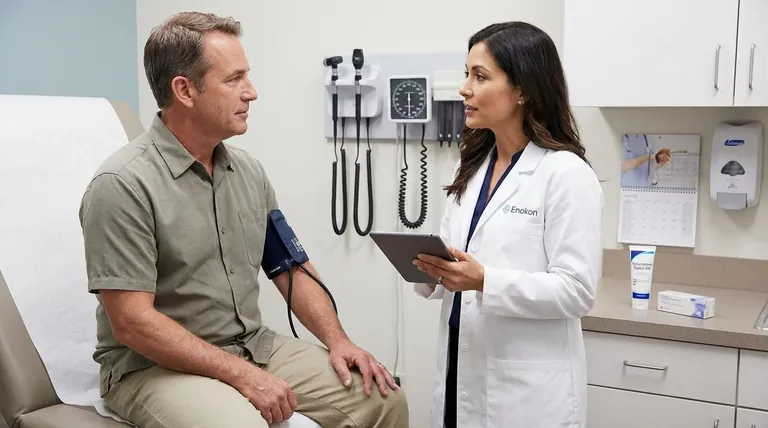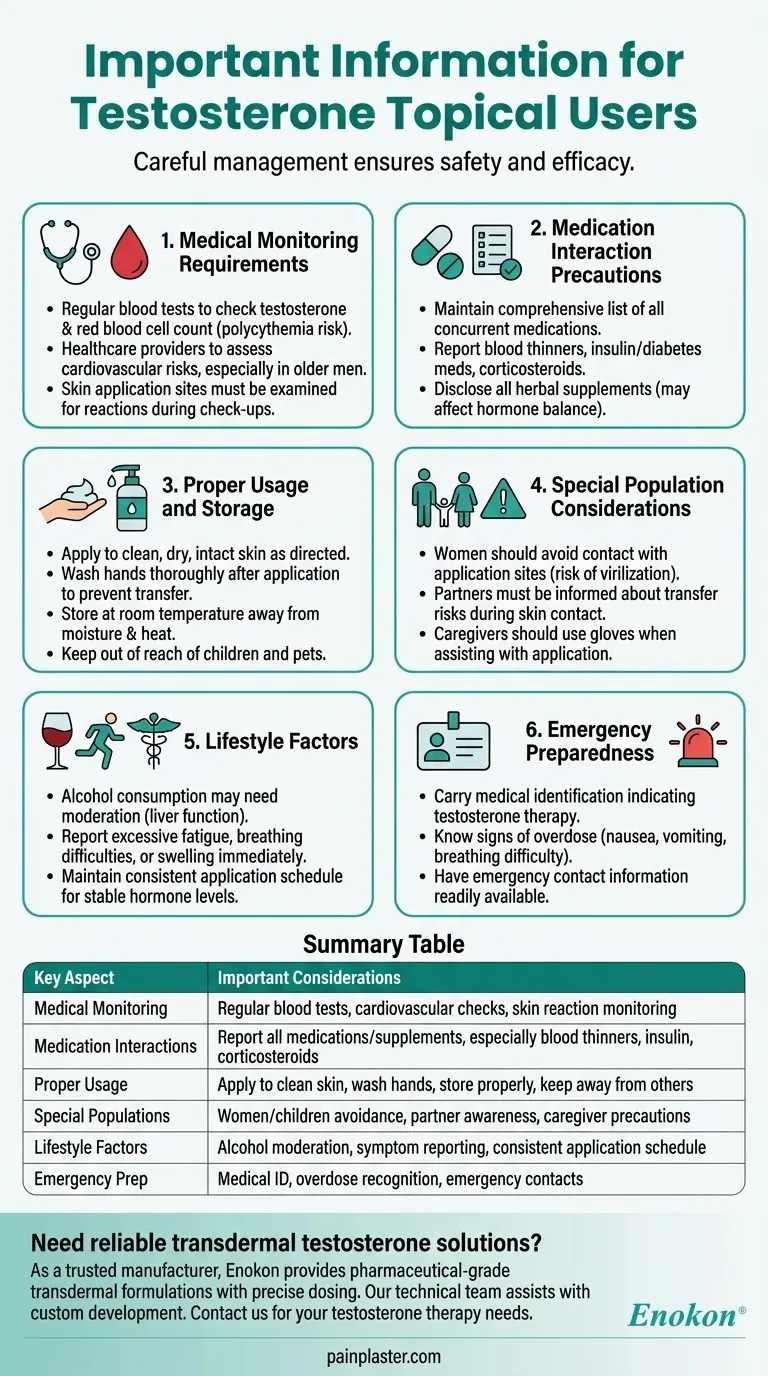Testosterone topical therapy requires careful management to ensure safety and efficacy. Users should prioritize regular medical check-ups to monitor hormone levels and potential side effects. Maintaining open communication with healthcare providers about all medications and supplements helps prevent dangerous interactions. Proper storage and personal use of the medication prevents accidental exposure to others, especially women and children who could experience adverse effects from contact with the medication. Documenting all treatments creates a valuable reference for medical professionals and helps track personal health history.

Key Points Explained:
-
Medical Monitoring Requirements
- Regular blood tests are crucial to check testosterone levels and monitor for polycythemia (abnormally high red blood cell count)
- Healthcare providers need to assess for potential cardiovascular risks, especially in older men
- Skin application sites should be examined for reactions during check-ups
-
Medication Interaction Precautions
- Maintain a comprehensive list of all concurrent medications including:
- Blood thinners (may increase bleeding risk)
- Insulin or diabetes medications (testosterone can affect blood sugar)
- Corticosteroids (potential additive fluid retention)
- Report all herbal supplements as some may affect hormone balance
- Maintain a comprehensive list of all concurrent medications including:
-
Proper Usage and Storage
- Apply only to clean, dry, intact skin as directed
- Wash hands thoroughly after application to prevent accidental transfer
- Store at room temperature away from moisture and heat
- Keep out of reach of children and pets
-
Special Population Considerations
- Women should avoid contact with application sites due to risk of virilization
- Partners should be informed about potential transfer risks during skin contact
- Caregivers should use gloves when assisting with application if needed
-
Lifestyle Factors
- Alcohol consumption may need moderation as it can affect liver function tests
- Report any excessive fatigue, breathing difficulties, or swelling immediately
- Maintain consistent application schedule for stable hormone levels
-
Emergency Preparedness
- Carry medical identification indicating testosterone therapy
- Know the signs of overdose (nausea, vomiting, breathing difficulty)
- Have emergency contact information readily available
Summary Table:
| Key Aspect | Important Considerations |
|---|---|
| Medical Monitoring | Regular blood tests, cardiovascular checks, skin reaction monitoring |
| Medication Interactions | Report all medications/supplements, especially blood thinners, insulin, corticosteroids |
| Proper Usage | Apply to clean skin, wash hands, store properly, keep away from others |
| Special Populations | Women/children avoidance, partner awareness, caregiver precautions |
| Lifestyle Factors | Alcohol moderation, symptom reporting, consistent application schedule |
| Emergency Prep | Medical ID, overdose recognition, emergency contacts |
Need reliable transdermal testosterone solutions? As a trusted manufacturer of medical patches and topical delivery systems, Enokon provides pharmaceutical-grade transdermal formulations with precise dosing. Our technical team can assist with custom development for your testosterone therapy products. Contact our specialists today to discuss your formulation needs and benefit from our expertise in transdermal drug delivery systems.
Visual Guide

Related Products
- Far Infrared Deep Heat Relief Patches Medicated Pain Relief Patches
- Capsaicin Chili Medicated Pain Relief Patches
- Medical Cooling Gel Patches for Fever Cooling Patches
- Herbal Eye Protection Patch Eye Patch
- Prostate Pain Kidney Health Care Patch for Men
People Also Ask
- How do pain relief patches work? A Guide to Targeted, Long-Lasting Pain Relief
- How quickly does the Deep Heat Pain Relief Back Patch activate and how long does it provide warmth? Get 16-Hour Relief
- How do pain relief patches provide targeted relief? Discover the Science Behind Effective Pain Management
- How does the Deep Heat Back Patch work? A Drug-Free Solution for Targeted Pain Relief
- How do pain relief patches compare to other pain relief methods? Discover Targeted, Long-Lasting Relief














